第211章 Chapter 61(2)
The venerable excursionists were not gay and frisky. They played no blind-man's buff; they dealt not in whist; they shirked not the irksome journal, for alas! most of them were even writing books. They never romped, they talked but little, they never sang, save in the nightly prayer-meeting. The pleasure ship was a synagogue, and the pleasure trip was a funeral excursion without a corpse. (There is nothing exhilarating about a funeral excursion without a corpse.) A free, hearty laugh was a sound that was not heard oftener than once in seven days about those decks or in those cabins, and when it was heard it met with precious little sympathy. The excursionists danced, on three separate evenings, long, long ago, (it seems an age.) quadrilles, of a single set, made up of three ladies and five gentlemen, (the latter with handkerchiefs around their arms to signify their sex.) who timed their feet to the solemn wheezing of a melodeon; but even this melancholy orgie was voted to be sinful, and dancing was discontinued. The pilgrims played dominoes when too much Josephus or Robinson's Holy Land Researches, or book-writing, made recreation necessary--for dominoes is about as mild and sinless a game as any in the world, perhaps, excepting always the ineffably insipid diversion they call croquet, which is a game where you don't pocket any balls and don't carom on any thing of any consequence, and when you are done nobody has to pay, and there are no refreshments to saw off, and, consequently, there isn't any satisfaction whatever about it--they played dominoes till they were rested, and then they blackguarded each other privately till prayer-time. When they were not seasick they were uncommonly prompt when the dinner-gong sounded. Such was our daily life on board the ship--solemnity, decorum, dinner, dominoes, devotions, slander. It was not lively enough for a pleasure trip; but if we had only had a corpse it would have made a noble funeral excursion. It is all over now; but when I look back, the idea of these venerable fossils skipping forth on a six months' picnic, seems exquisitely refreshing. The advertised title of the expedition--"The Grand Holy Land Pleasure Excursion "--was a misnomer. "The Grand Holy Land Funeral Procession" would have been better--much better. Wherever we went, in Europe, Asia, or Africa, we made a sensation, and, I suppose I may add, created a famine. None of us had ever been any where before; we all hailed from the interior; travel was a wild novelty to us, and we conducted ourselves in accordance with the natural instincts that were in us, and trammeled ourselves with no ceremonies, no conventionalities.
We always took care to make it understood that we were Americans--Americans!
When we found that a good many foreigners had hardly ever heard of America, and that a good many more knew it only as a barbarous province away off somewhere, that had lately been at war with somebody, we pitied the ignorance of the Old World, but abated no jot of our importance. Many and many a simple community in the Eastern hemisphere will remember for years the incursion of the strange horde in the year of our Lord 1867, that called themselves Americans, and seemed to imagine in some unaccountable way that they had a right to be proud of it. We generally created a famine, partly because the coffee on the Quaker City was unendurable, and sometimes the more substantial fare was not strictly first class; and partly because one naturally tires of sitting long at the same board and eating from the same dishes. The people of those foreign countries are very, very ignorant.
They looked curiously at the costumes we had brought from the wilds of America. They observed that we talked loudly at table sometimes. They noticed that we looked out for expenses, and got what we conveniently could out of a franc, and wondered where in the mischief we came from. In Paris they just simply opened their eyes and stared when we spoke to them in French!
We never did succeed in making those idiots understand their own language.
One of our passengers said to a shopkeeper, in reference to a proposed return to buy a pair of gloves, "Allong restay trankeel--may be ve coom Moonday;" and would you believe it, that shopkeeper, a born Frenchman, had to ask what it was that had been said. Sometimes it seems to me, somehow, that there must be a difference between Parisian French and Quaker City French. The people stared at us every where, and we stared at them.